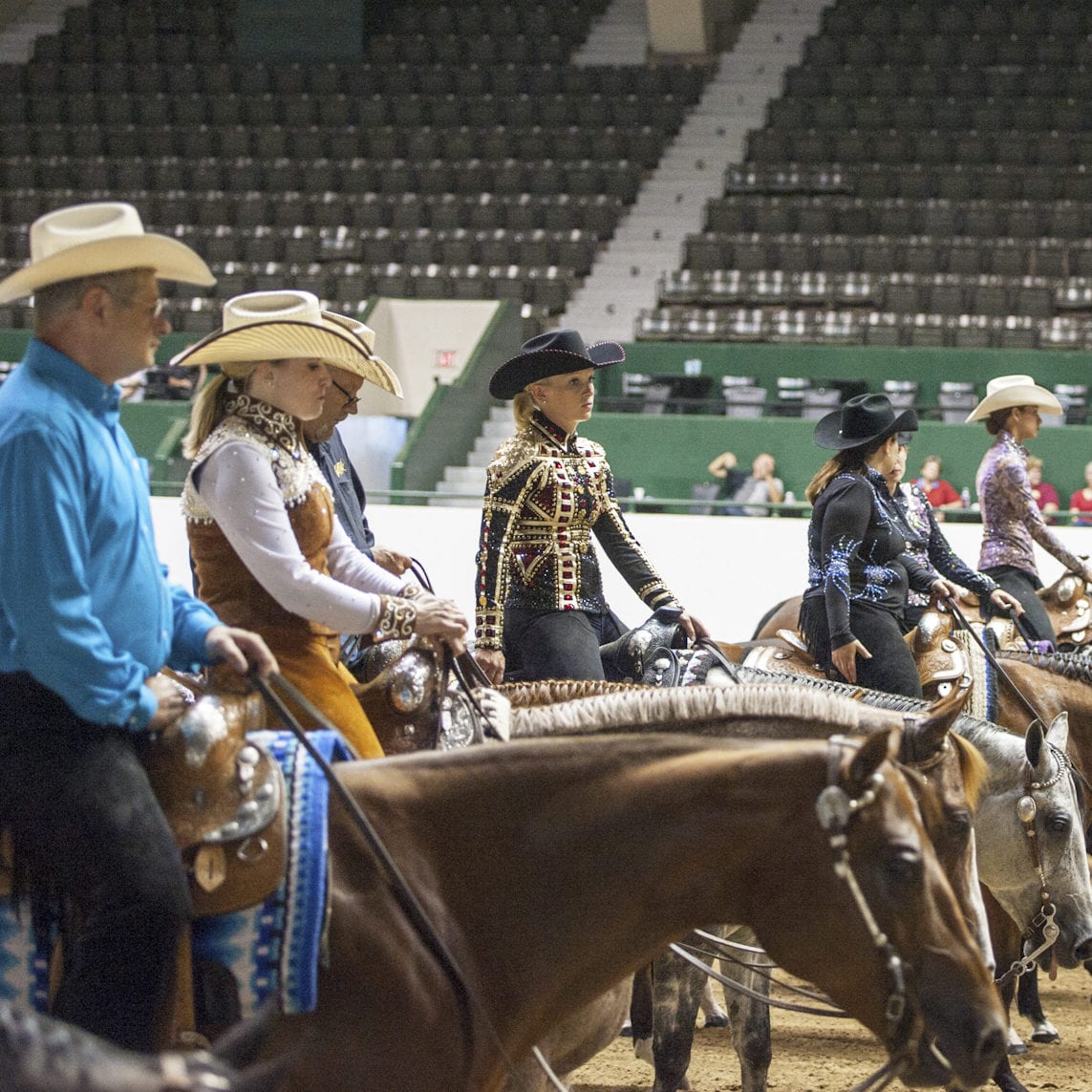Over the years, many breed organizations have added more and more divisions and classes to cater to specific levels of horses and riders. With these additional classes being added, it has led to later and later nights at horse shows. Some exhibitors have expressed that it has completely taken out the social part of getting to know everyone at the shows. Others appreciate the new classes because it brings a more level playing field to the shows while hopefully increasing membership and participation.
It seems to be a double-edged sword where it may be increasing numbers but for the sake of turning horse shows into a more isolated event where people just keep to themselves and their group. We asked exhibitors and trainers whether they believe there are too many classes at shows and, if so, what would they do to “fix” the problem.
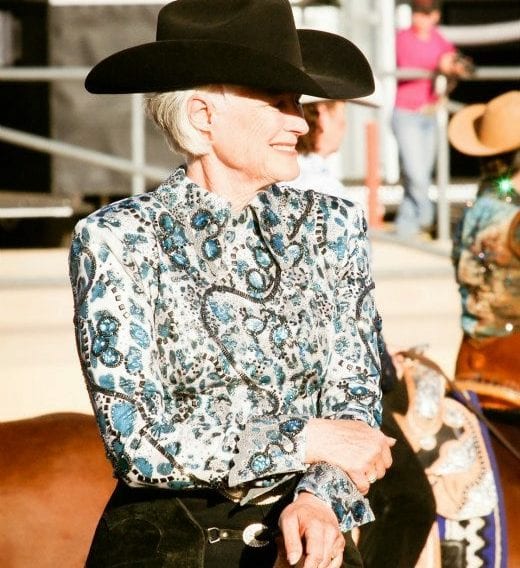 Kathy Tobin – As an older person who enjoys wine time and a good dinner, shows are interfering with that sometimes. In all honesty, it’s hard because class numbers have increased so that seems to slow the shows down. Most shows use different arenas to help ease the increase in classes, but schedules are printed before entries come in so it’s hard to account for unexpected larger entries than prior years. I guess there are getting to be a lot of classes with all the Ranch Riding and splitting Novice and Green classes into different age groups. Selfishly, I would like to see all Select classes go before Amateurs. They are young and stay up later and not so much into wine time and dinners.
Kathy Tobin – As an older person who enjoys wine time and a good dinner, shows are interfering with that sometimes. In all honesty, it’s hard because class numbers have increased so that seems to slow the shows down. Most shows use different arenas to help ease the increase in classes, but schedules are printed before entries come in so it’s hard to account for unexpected larger entries than prior years. I guess there are getting to be a lot of classes with all the Ranch Riding and splitting Novice and Green classes into different age groups. Selfishly, I would like to see all Select classes go before Amateurs. They are young and stay up later and not so much into wine time and dinners.
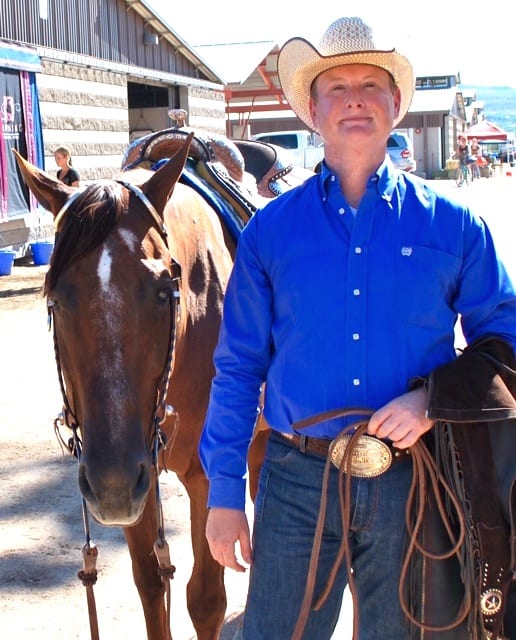 Jason Wanderer – I do not think there are too many classes, but I do think the days have become long at many shows. I believe that deters many people from participating or, often I see individuals who intended on showing, scratch due to the late timing of the classes.
Jason Wanderer – I do not think there are too many classes, but I do think the days have become long at many shows. I believe that deters many people from participating or, often I see individuals who intended on showing, scratch due to the late timing of the classes.
While I am an advocate for shows being done so people can have dinner at reasonable hour and enjoy the social aspect of a show, I unfortunately do not have an idea of how to achieve that. I have heard many suggestions including: (A) add more arenas and judges simultaneously, but I know that leads to conflicts between the arenas and for the majority of shows, it is not financially feasible, (B) add more judges in a pen, but I disagree with that as when I go to a show, I personally want to show multiple times to try and improve and learn each time rather than just show once, (C) create specialized shows where, for example, they only offer showmanship, horsemanship, equitation, trail and western riding while other shows would have reining, ranch and another hunters and driving.
However, I would be concerned that this would further fragment an already specialized industry. I hate to point out a problem without any viable solutions, but in this case, the shows have become marathons for horses, trainers, exhibitors and parents with late nights, early morning, little sleep and a lot of people getting sick, but I am not sure of the solution.
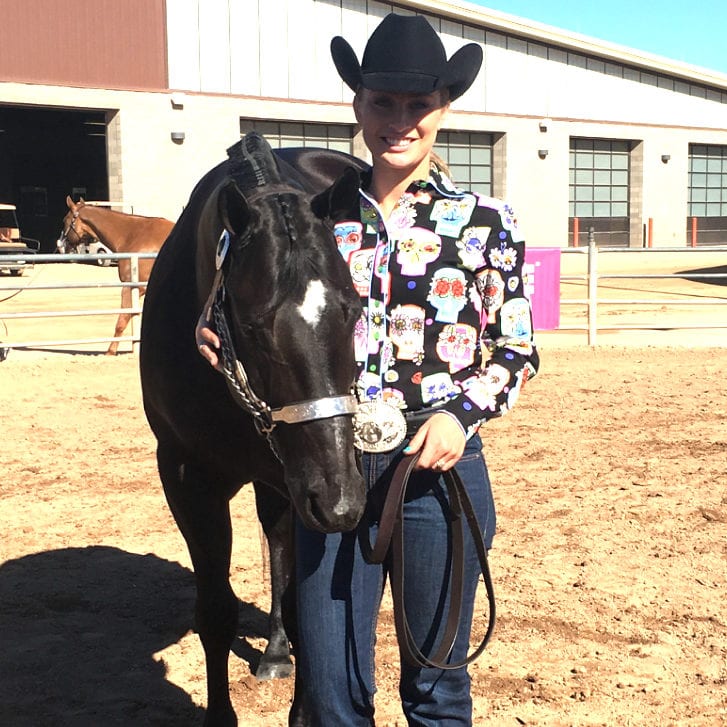 Johnna Letchworth Clark – I do feel like the shows have become slightly less enjoyable and a little more stressful. The days are long, and the quality of competition is so high that one must stay up half of the night to be prepared. The long days take a toll on trainers, exhibitors, and horses.
Johnna Letchworth Clark – I do feel like the shows have become slightly less enjoyable and a little more stressful. The days are long, and the quality of competition is so high that one must stay up half of the night to be prepared. The long days take a toll on trainers, exhibitors, and horses.
If we showed to fewer judges at a horse show, the costs would drop and the days may become shorter. I also think that the weekdays of the show should be Open classes only and then the weekend could be for Youth and Amateur exhibitors. That way, time off of school and work is easier which would result in making the classes bigger.
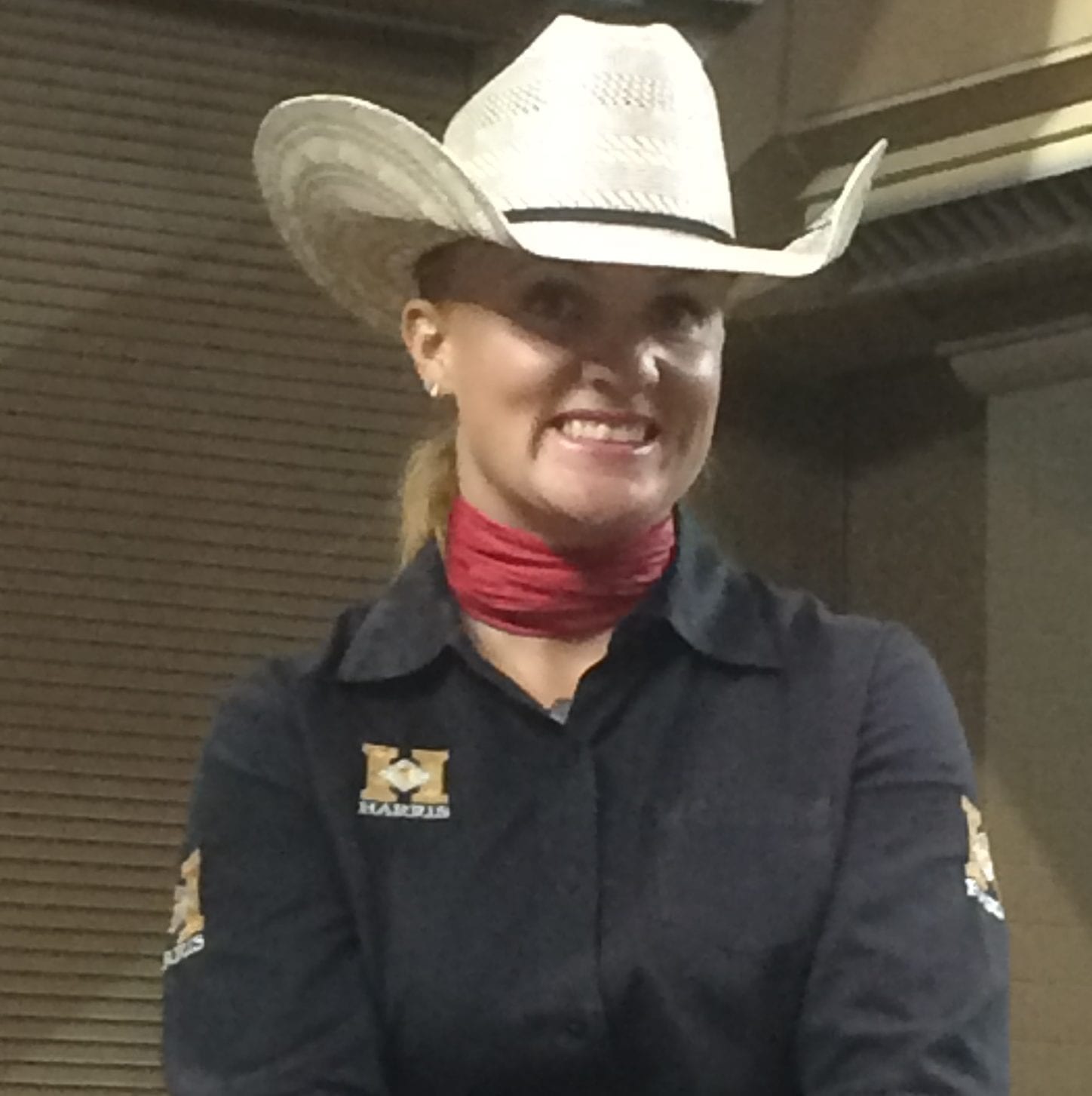 Katy Jo Zuidema – I think it’s almost impossible to eliminate classes at AQHA shows. But I will tell you the futurities are thought of as more fun because they have more social time in the evenings. I don’t just mean NSBA, but the cutting and reining futurities too.
Katy Jo Zuidema – I think it’s almost impossible to eliminate classes at AQHA shows. But I will tell you the futurities are thought of as more fun because they have more social time in the evenings. I don’t just mean NSBA, but the cutting and reining futurities too.
Tim and I have always believed that we are people’s hobbies. We’re competing with boats, motocross, the beach, etc, so it has to be fun for people. We’re a step away from glorified entertainment staff who also have to be really good horsemen. The Reichert Celebration back in the day was everyone’s favorite show. They had an awesome rodeo announcer, there were parties every night put on by a different sponsor, there was a premier class that typically started at a decent hour, and then, afterwards, we all hung out together. That’s what it’s about and we’ve lost that. I think it’s a big reason the futurities and the smaller weekend shows are doing well.
I don’t know what the solution is on the horse show side, but for us, we cut our numbers in half. We are lucky to work for good people who we like to be around, and when we have fewer than six horses at a show, we have more time to spend with our horses and our people.
If life and business are about relationships, then, for us, it was a choice we had to make to keep it fun for people. In my opinion, no matter how much you win, if it’s not fun, it doesn’t matter. A person can spend a lot less money on a huge boat and a case of beer in a cover-up than they can to show a horse and be stressed out and sweaty all weekend. So, it has to be about relationships with people and an enjoyable time.
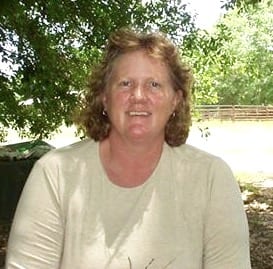 Norlene Leake – It’s one of the reasons I quit doing shows. It’s almost impossible for the average size show to make a profit now. Maybe if you don’t do cattle etc. as the rail classes are the easiest to make something on.
Norlene Leake – It’s one of the reasons I quit doing shows. It’s almost impossible for the average size show to make a profit now. Maybe if you don’t do cattle etc. as the rail classes are the easiest to make something on.
However, when you take say 20 or 35 amateurs and split them up three or four ways for pleasure or hunter under saddle, you have already lengthened your amateur class three times over. Not so much with the individual working classes, it doesn’t matter as much. However, for show management, the workload for your secretary just increased and so did your award costs. At least for me, in this area, I have not seen an increase in numbers to warrant all these classes.
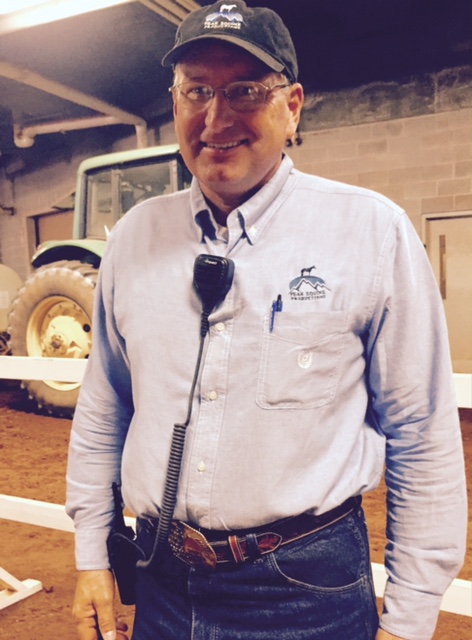 Patrick Kayser – Yes I think we have too many classes. This past year I had a show bill with over 170 classes. This is ridiculous. When you work with a show committee, everyone wants the classes and levels that benefit them regardless of the number of entries or time it may add to the show.
Patrick Kayser – Yes I think we have too many classes. This past year I had a show bill with over 170 classes. This is ridiculous. When you work with a show committee, everyone wants the classes and levels that benefit them regardless of the number of entries or time it may add to the show.
The other scenario is that we keep adding classes or levels to help draw in more entries because they are growing in popularity, but we don’t get rid of the classes that only have a minimal amount of participation.
To combat this, shows must either have long days or multiple arenas going at the same time. Either way, you are adding a lot of expense to the show. An alternative is to cut out whole divisions (i.e. in a timely manner the Madness getting rid of over fence classes). There is no easy fix.
As a show manager, my first responsibility is to the show. As an advocate for the horse show industry, I want to increase the opportunities for those showing in specialty divisions (rookie, novice or Level 1, Youth, cattle classes, over fences, contest etc.) in order to encourage more involvement and bring new people into the fold. It is a delicate balance.
The key to making any decision is to remember the end consumer. If they are not having fun and enjoy the show, or do not believe that he or she is receiving value for his or her hard earned discretionary dollar, they will go elsewhere.
Here are some other issues: Showing to more judges at one time vs. showing multiple times in a weekend, associations requiring certain classes be held (halter for example), associations placing restraints on how many judges can judge at one time (again, in halter as it now takes too long with more than 4 judges).
With individually worked and scored classes being so popular, you need to have more of those classes even though they are the least cost-effective classes compared to group rail classes. Show committees will need to add days, arenas or hours to fit it all in.
Regardless of the solution, it will cost money, and those costs will be passed on to the consumer or committees will need to find outside monies from sponsors, etc.
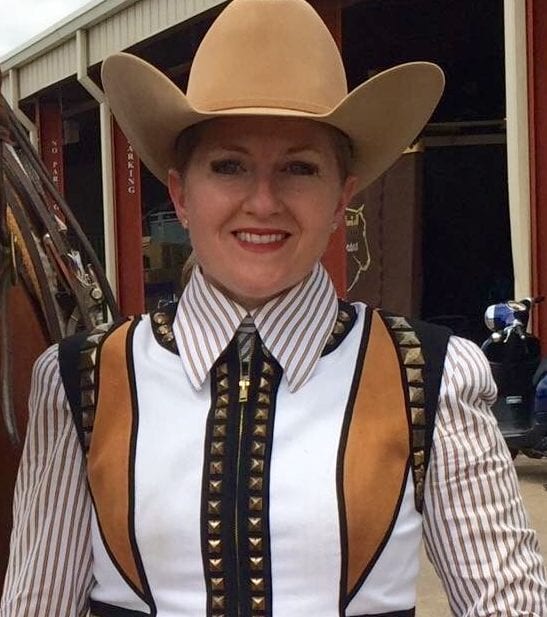 Beckie Peskin – I think this is an excellent question and one that I just chatted about with some folks at the last horse show. Let me start by saying I love the addition of walk trot classes and things that are encouraging more people to either try new things or simply try an AQHA show. However, these new classes have caused shows to go incredibly long on certain days.
Beckie Peskin – I think this is an excellent question and one that I just chatted about with some folks at the last horse show. Let me start by saying I love the addition of walk trot classes and things that are encouraging more people to either try new things or simply try an AQHA show. However, these new classes have caused shows to go incredibly long on certain days.
Now, with all of the novice classes, newcomers only get one run per weekend, wherein the old days, they would’ve shown each class a couple of times thus getting more practice. Perhaps they could hire local judges and run those in a separate arena if they have space? They could run those classes during things like trail or western riding or ranch riding on Friday or times when there are ways to work around conflicts in the schedule.
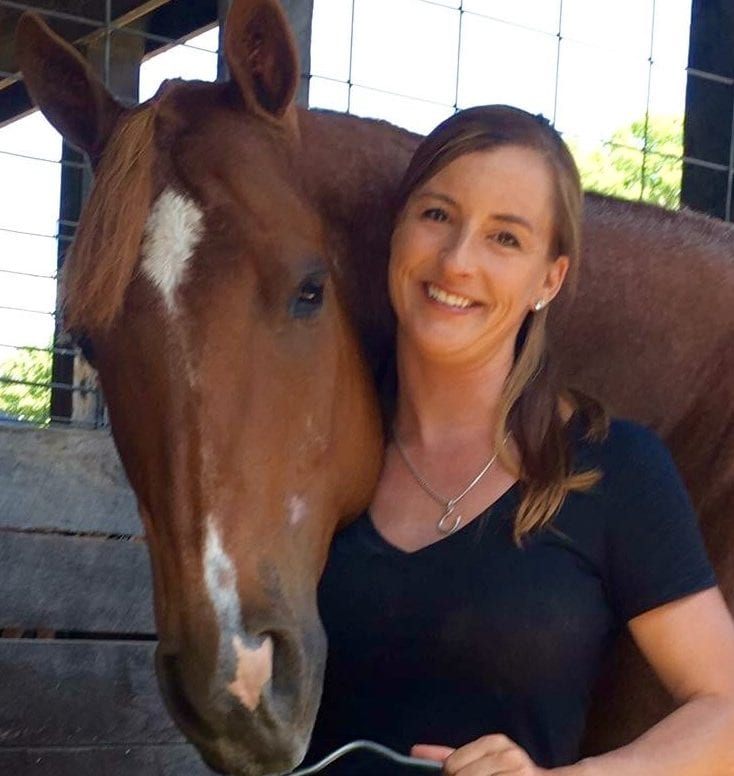 Jennifer D’Onofrio – I do agree, as an all arounder, the late nights and early mornings make it hard to enjoy yourself. I think it is hard, too, when you are no longer level 1 status. You have a lot of waiting around and downtime. The level 1 classes are huge which is great but creates long days.
Jennifer D’Onofrio – I do agree, as an all arounder, the late nights and early mornings make it hard to enjoy yourself. I think it is hard, too, when you are no longer level 1 status. You have a lot of waiting around and downtime. The level 1 classes are huge which is great but creates long days.
Recently, we attended the EOQHA show in Columbus and the trail and western riding was run in blocks while pleasure driving and hunter hack and then the western pleasure and horsemanship were in a separate arena. The show staff was super friendly and accommodating which was helpful. Showmanship and halter were Friday night which can be challenging with school schedules, but it sure made Sunday more manageable.
I think having multiple sets of judges and arenas is expensive for shows but necessary when there are scores of entries. Feasibly one set of judges can be judging ranch riding/reining while another set is judging hunt seat since these horses don’t overlap.
 Farley McLendon – In general, the social aspect of life has changed due to the cell phone and social media. Do I agree there are a lot of classes and less time to socialize? Yes. I honestly don’t see how to change it unless we add days and put certain groups of classes on certain days – model it after the Oklahoma Spring Show.
Farley McLendon – In general, the social aspect of life has changed due to the cell phone and social media. Do I agree there are a lot of classes and less time to socialize? Yes. I honestly don’t see how to change it unless we add days and put certain groups of classes on certain days – model it after the Oklahoma Spring Show.
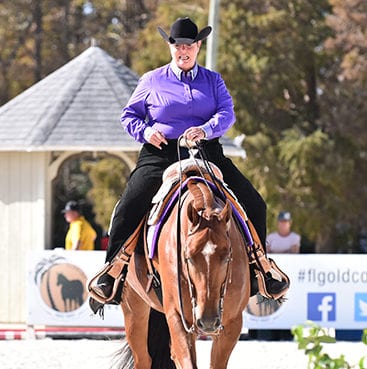 Joanne Garnett – I think there are way too many classes offered at some horse shows. Not only from the social aspect, but the shows are now using multiple arenas to show in which leaves less space to warm up and ride. I wish shows that offered all the classes would spread the show out over more days and, for example, provide the cattle events in a group and then the all-around in a group so there are more places to ride and maybe shorter days. Although, if you want a horse with a lot of points, you have to expect a long day.
Joanne Garnett – I think there are way too many classes offered at some horse shows. Not only from the social aspect, but the shows are now using multiple arenas to show in which leaves less space to warm up and ride. I wish shows that offered all the classes would spread the show out over more days and, for example, provide the cattle events in a group and then the all-around in a group so there are more places to ride and maybe shorter days. Although, if you want a horse with a lot of points, you have to expect a long day.
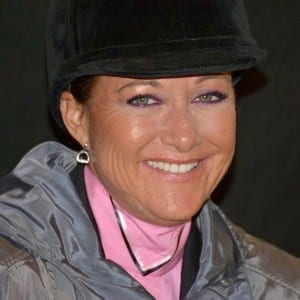 Kim Reynolds– I am not really sure what you would do to change things, to be honest. I don’t necessarily think there are too many classes as we are trying to encourage people to attend AQHA shows so we need all of those classes to do that. I know trail takes up a lot of time and for starters they might need to keep that a separate day with more judges. I really feel at some point, due to the money involved, trainers and exhibitors have turned their focus onto winning versus the experience and fun they have with their horse.
Kim Reynolds– I am not really sure what you would do to change things, to be honest. I don’t necessarily think there are too many classes as we are trying to encourage people to attend AQHA shows so we need all of those classes to do that. I know trail takes up a lot of time and for starters they might need to keep that a separate day with more judges. I really feel at some point, due to the money involved, trainers and exhibitors have turned their focus onto winning versus the experience and fun they have with their horse.
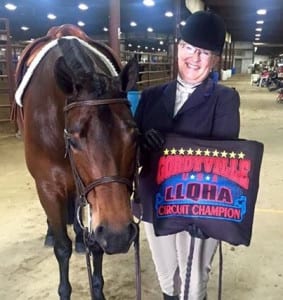 Suzanne Mayo – This is a result of trying to have something for everyone. Trainers asked for it and show managers complied. Careful what you wish for. Too many classes crammed into too few hours. The hunter jumper shows have fallen into this trap also.
Suzanne Mayo – This is a result of trying to have something for everyone. Trainers asked for it and show managers complied. Careful what you wish for. Too many classes crammed into too few hours. The hunter jumper shows have fallen into this trap also.
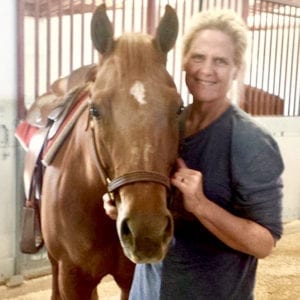 Cathy Frank – I don’t think there is a lot show management can do. What divisions would they give up? Select? Novice? Combine Junior with Senior? There should be a place/market for everyone who wants to participate. Maybe add a mandatory day off for circuits over four or five days long? I don’t know the answer.
Cathy Frank – I don’t think there is a lot show management can do. What divisions would they give up? Select? Novice? Combine Junior with Senior? There should be a place/market for everyone who wants to participate. Maybe add a mandatory day off for circuits over four or five days long? I don’t know the answer.
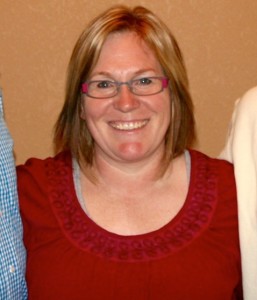 Brenda Gower The show days are definitely a lot longer and the social aspect is diminishing because of it. I don’t have any suggestions at this time on how to change the schedule. I know the horse show management tries their utmost to make the shows run as smoothly as possible and as quickly as possible. I would not want their jobs as to seek to make everything work for everyone in every class.
Brenda Gower The show days are definitely a lot longer and the social aspect is diminishing because of it. I don’t have any suggestions at this time on how to change the schedule. I know the horse show management tries their utmost to make the shows run as smoothly as possible and as quickly as possible. I would not want their jobs as to seek to make everything work for everyone in every class.
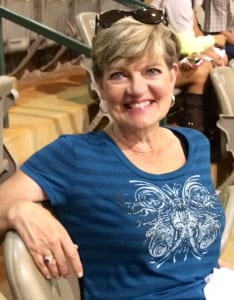 Brister Shum – I’ve shown AQHA consistently for 26 years. Visiting with friends at dinner has always been one of the highlights of showing. The last few years, it has become increasingly difficult to get together for much-awaited dinners due to show schedules. Many of the classes have only one to five exhibitors. If we could combine age classes differently, shows would run smoother and faster. Maybe we should consider mandatory combining of classes with five entries or less.
Brister Shum – I’ve shown AQHA consistently for 26 years. Visiting with friends at dinner has always been one of the highlights of showing. The last few years, it has become increasingly difficult to get together for much-awaited dinners due to show schedules. Many of the classes have only one to five exhibitors. If we could combine age classes differently, shows would run smoother and faster. Maybe we should consider mandatory combining of classes with five entries or less.
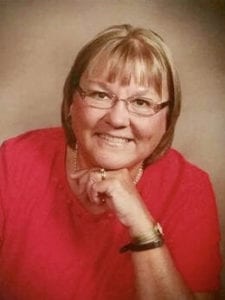 Susan Daniels – From a show management side, it’s hard to change it. We have to offer the classes people want to show in. We do offer exhibitor parties and a hospitality booth with coffee and donuts to try to help with the social aspect of our shows.
Susan Daniels – From a show management side, it’s hard to change it. We have to offer the classes people want to show in. We do offer exhibitor parties and a hospitality booth with coffee and donuts to try to help with the social aspect of our shows.
Do you think there are too many classes at horse shows? If so, what suggestions do you have to make the shows shorter and more fun? Let us know.


